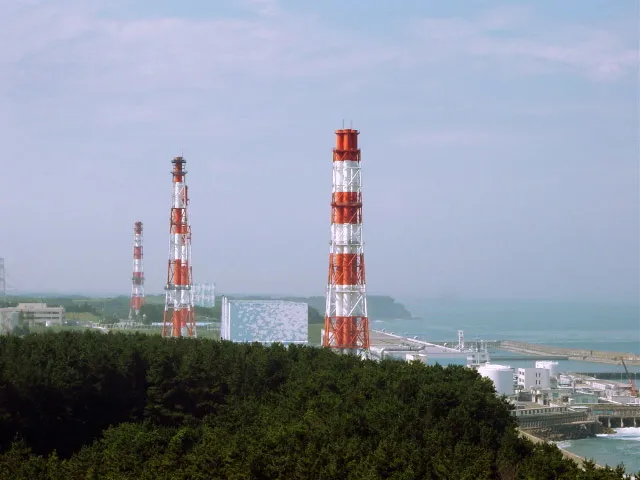
Radioactive substances found in treated water from Fukushima NPP
Authorities are considering dumping the water into the sea.
There are still radioactive substances in treated water from the Fukushima Daiichi nuclear power plant, Japan’s Kyodo News has revealed. Tritium, a radioactive isotope of hydrogen, has been found in the water at the nuclear power plant.
TEPCO says a maximum of 62.2 becquerels per litre of lodine 129, far higher than the 9-becquerel legal limit, was found in the water filtered by the Advanced Liquid Processing System used to remove various types of radioactive materials.
Lodine 129 has a half-life of 15.70 million years. It also detected a maximum 92.5 becquerels of Ruthenium 106, just a little shy of the 100-becquerel legal limit. Fifty-nine becquerels of technetium 99 against the limit of 1,000 becquerels were also found by TEPCO.
The Fukushima Daiichi nuclear complex was damaged by the 2011 Fukushima earthquake and tsunami, with the two of its reactors suffering fuel meltdowns after their cooling systems were crippled.
The Japanese government and TEPCO are pressed to dispose of the treated water currently kept in tanks after the discovery. Amongst its options include releasing the tritium-tainted water into the sea, the atmosphere, or into geographical layers.
But Nuclear Regulation Authority chief Toyoshi Fuketa says dumping the tritium-tainted water into the sea is the only solution. The tritium-tainted water is expected to be diluted first to lower the levels of other radioactive materials before being dumped into the sea.
Tritium poses little risk to human health despite being radioactive. But locals have expressed concern about the plan to dump the tainted water into the sea.
TEPCO says it has not checked the concentration of radioactive materials in each tank, but there are around 920,000 tons of tritium-tainted water stored in some 680 tanks within the premises of the Fukushima Daiichi nuclear power plant as of August 2018.
Photo by KEI, CC BY-SA 3.0








![Cross Domain [Manu + SBR + ABF + ABR + FMCG + HBR + ]](https://cmg-qa.s3.ap-southeast-1.amazonaws.com/s3fs-public/styles/exclusive_featured_article/public/2025-01/earth-3537401_1920_4.jpg.webp?itok=WaRpTJwE)
![Cross Domain [SBR + ABR]](https://cmg-qa.s3.ap-southeast-1.amazonaws.com/s3fs-public/styles/exclusive_featured_article/public/2025-01/pexels-jahoo-867092-2_1.jpg.webp?itok=o7MUL1oO)









 Advertise
Advertise


